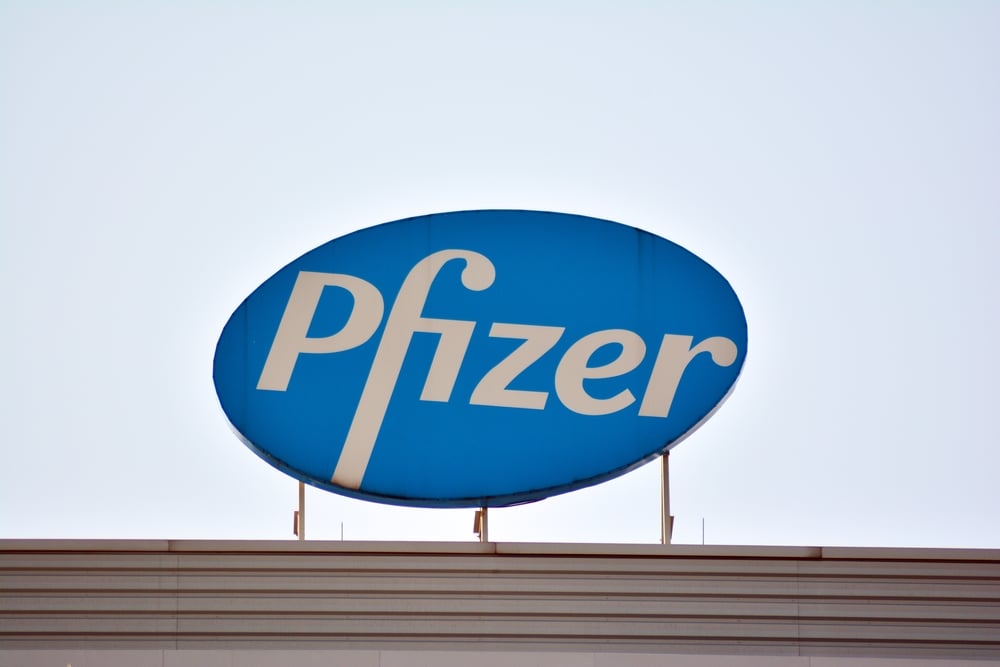
You may be among the many investors suffering from vaccine fatigue. Everyday investors are reminded that the market and economy can’t get back to normal without a Covid-19 vaccine.
That’s correct of course. But it risks becoming white noise.
And that’s important to note when you try to make sense of the Pfizer NYSE: PFE earnings report. The company released earnings on July 28. The company beat analysts’ expectations on the top and bottom lines. Pfizer reported adjusted earnings of 78 cents per share on revenue of $11.8 billion.
Both numbers were lower on both a sequential and a year-over-year basis. But that’s no surprise. The quarter encompasses April and May when parts, if not the majority of the United States was under shelter-in-place orders.
With all that said, PFE stock is up 3% after the earnings report and closing in on its year-to-date high set back in January.
But where it can go from there? I’m not sure if it can go much higher without winning the race for a vaccine.
The possibility of a vaccine will remain a catalyst for the stock
The reason why the stock is surging is because Pfizer and BioNTech SE NASDAQ: BNTX started a late-stage trial for a Covid-19 vaccine. The Phase 3 trial will include up to 30,000 participants ranging in age from 18 to 85. The global trial will include 39 U.S. states. If the trial delivers positive results, Pfizer will submit the vaccine for the final regulatory review perhaps as early as October.
But as we’ve learned just getting a vaccine isn’t enough. It is going to be equally important to get the vaccine produced at scale. And Pfizer also received good news on that front. The Federal government via Operation Warp Speed is giving the company $1.95 billion to produce 100 million doses by the end of this calendar year. That would be followed up with the company being able to produce approximately 1.3 billion doses by the end of 2021.
Pfizer stock is approximately 20% away from its all-time high
Since last summer, PFE stock was trading sideways until the market selloff in March, hovering around $40. The all-time high for Pfizer stock is $46.52. Here’s why those numbers matter.
Pfizer reported a 4% increase in sales for its biopharma division, which focuses on new drugs. But that was offset by declining sales at the company’s Upjohn division. Upjohn sales were down 32% on a year-over-year basis at $2.01 billion. As a result, Pfizer reported a decline in revenue for its pharmaceutical portfolio.
Part of the reason for the decline was that Upjohn lost exclusive rights to Lyrica, a medication for nerve pain. But that just illustrates the challenge of the pharmaceutical industry. Pfizer is in the process of spinning off Upjohn as part of a merger that will be complete in the fourth quarter.
As a result, Pfizer announced a slight boost in its full-year guidance. The company now expects sales to grow from $40.8 to $42.4 billion. That’s up from a range of $40.7 to $42.3 billion. That didn’t account for future Covid-19 vaccine sales.
How high can Pfizer stock go?
Pfizer is a blue-chip stock. From a historical standpoint, it doesn’t fly too high or too low. And investors get a nice dividend for their investment. PFE stock is up nearly 40% since the market selloff. Furthermore, the positive earnings report has sent the stock past a crucial level of resistance at around $38.50.
With all that said, the company’s latest earnings show that when you strip away the company’s potential vaccine candidate there may not be enough sales growth there to justify the stock hitting all-time levels.
But that’s not the world we live in. Everything is about the race for a vaccine. And Pfizer is right in the middle of that race. In fact, right now Pfizer is considered one of three companies along with Moderna NASDAQ: MRNA and Johnson & Johnson NYSE: JNJ that are considered most likely to have a successful vaccine.
If you currently own Pfizer stock, there’s no reason to sell right now. But pay attention to the news. Of course if Pfizer doesn’t win the race to a vaccine, the stock could take a sharp dip. If you don’t own Pfizer stock, I’m not sure if right now is the best time to take a new position in the stock. Wait a few days and see if the stock comes down off this rally. You may be able to find nice entry point if the stock gets back near that $38.50 level.
Before you make your next trade, you'll want to hear this.
MarketBeat keeps track of Wall Street's top-rated and best performing research analysts and the stocks they recommend to their clients on a daily basis.
Our team has identified the five stocks that top analysts are quietly whispering to their clients to buy now before the broader market catches on... and none of the big name stocks were on the list.
They believe these five stocks are the five best companies for investors to buy now...
See The Five Stocks Here
Click the link below and we'll send you MarketBeat's list of the 10 best stocks to own in 2024 and why they should be in your portfolio.
Get This Free Report